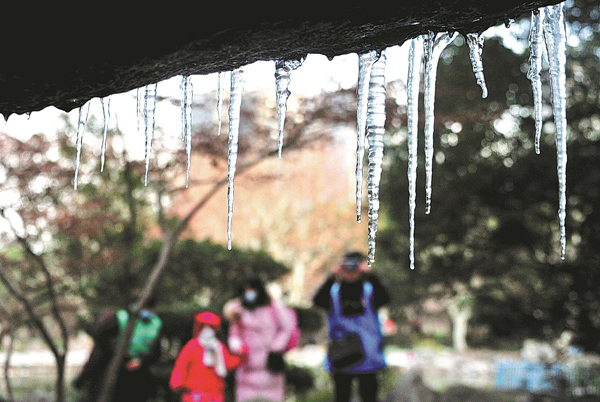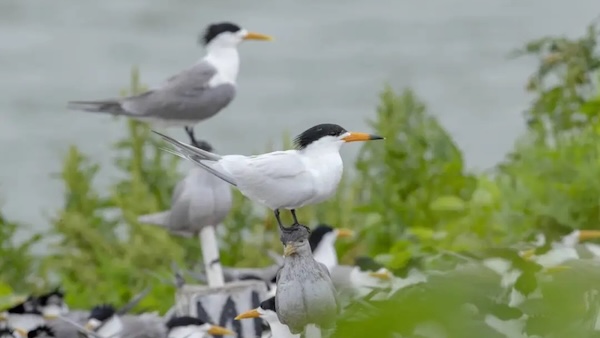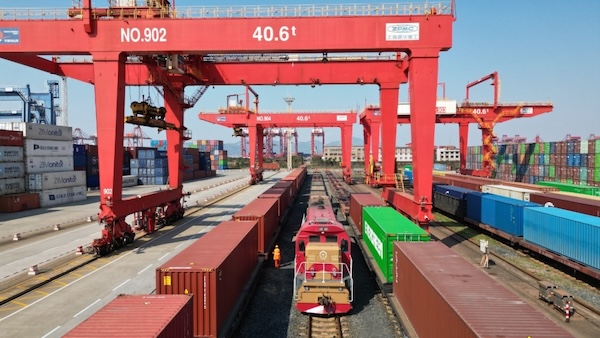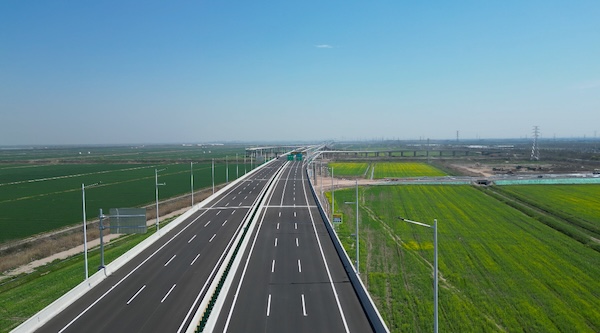Periodic cold weather predicted from mid-January

Icicles are formed by dripping flowing down a rocky overhang at a park in Shanghai on Monday. The temperature in the city dropped to-3 C in the morning. [Photo by YANG JIANZHENG/FOR CHINA DAILY]
Periodic extremely cold weather is highly likely to occur from mid-January to the end of February and is expected to cause icy roads, frozen electricity systems and frosted communication facilities, said a leading Chinese weather expert.
The weather will coincide with the Spring Festival travel rush, when large groups of migrant workers return home by rail, air and highway. The rush will span from Jan 17 to Feb 25, the Ministry of Transport said.
Jia Xiaolong, deputy director of the National Climate Center, told a news conference on Wednesday that northern areas in China are forecast to experience more precipitation and lower temperatures than normal years while people in the eastern and southwestern provinces will see more foggy days.
"It is necessary to take measures including melting snow by machine and guiding traffic in a timely manner to minimize the impacts such as expressway closures or major traffic accidents," Jia said.
Jia said that due to global warming, frequent extreme weather and climate events have become the norm.
This year, the weather and climate situation in China has been exceptional, with extreme weather occurring frequently and widely, he said.
"The extreme coldness in January and the extreme warmth in February in the middle and eastern parts of China this year illustrated the exception," he said.
Strong sandstorms in northern China in March and the summer flooding season were prominent.
In July, the heavy rain in Zhengzhou, Henan province, hit a record with its maximum daily rainfall reaching 624 millimeters, close to the station's annual rainfall of 641 mm, Jia said.
Autumn flooding in most parts of China was also rare, after which cold waves swept across China. Regional strong convective weather processes featured extremely strong winds, frequent tornadoes and short-term heavy precipitation, he said.

 Ningbo seabird project seeks international volunteers
Ningbo seabird project seeks international volunteers  Jakub's journey: From shipyard to sea
Jakub's journey: From shipyard to sea  Badminton Asia COO applauds Ningbo
Badminton Asia COO applauds Ningbo 


